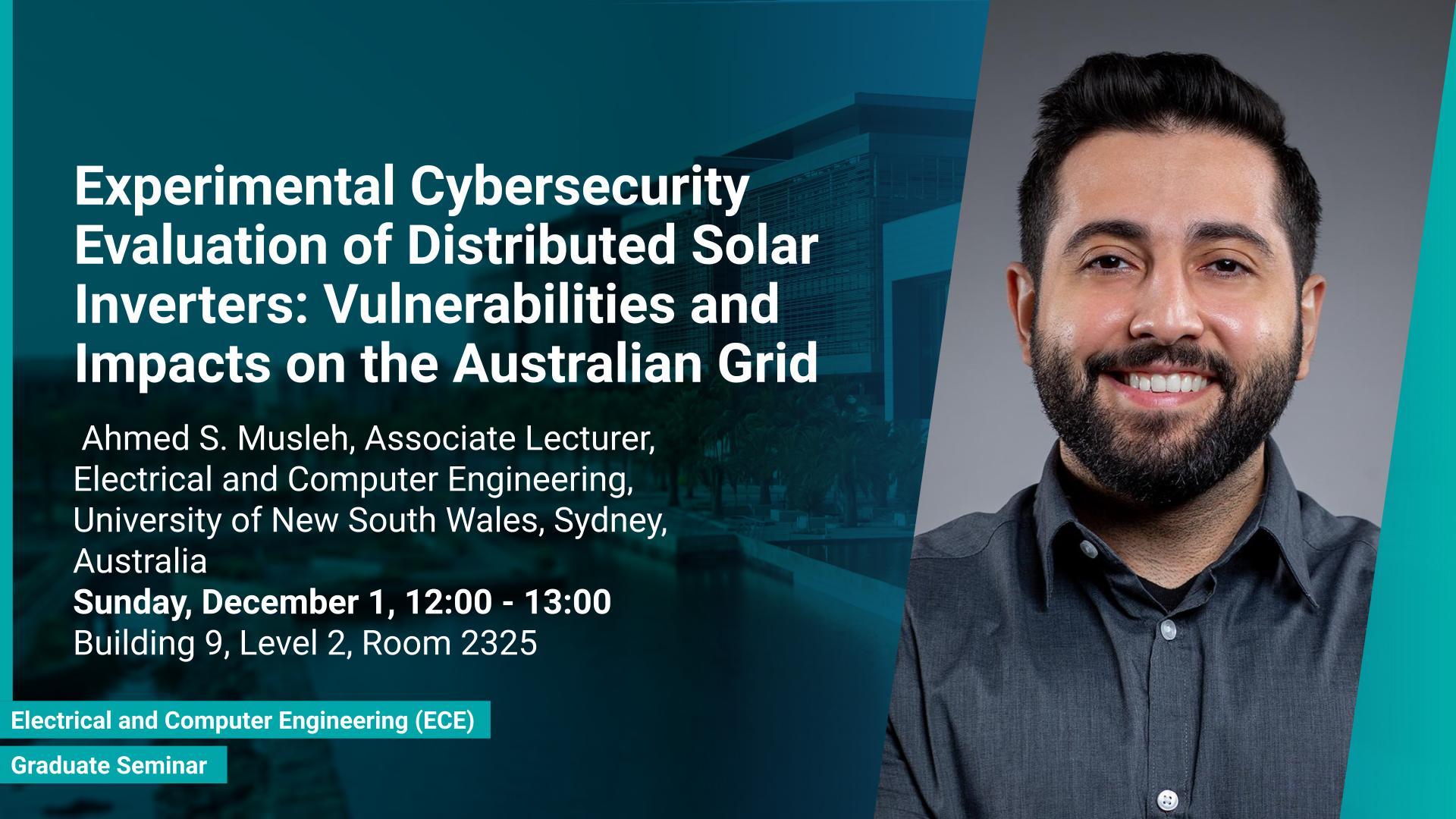Abstract
The increased adoption of solar power globally presents an environmentally sustainable alternative to traditional energy sources. However, integrating solar distributed generation (DG) systems into the power grid introduces complexities that can impact the grid’s reliability and security. While information and communication technologies have significantly improved the management and control of solar DG systems, they concurrently introduce new cybersecurity vulnerabilities. This presentations explores the security and stability challenges introduced by solar DG systems, with a specific focus on the vulnerabilities in commercial solar inverters. Additionally, it assesses the operational and economic consequences of cybersecurity incidents directed at commercial solar inverters within the energy sector, with a particular emphasis on the Australian grid. Given the vulnerabilities and potential impacts identified, the presentation proposes recommendations to enhance the cybersecurity posture of solar DG systems.
Brief Biography
Ahmed S. Musleh (Member, IEEE) received the B.Sc. degree from Abu Dhabi University in 2014, the M.Sc. degree from Petroleum Institute (currently Khalifa University), Abu Dhabi, UAE, in 2016, and the Ph.D. degree in electrical engineering from the University of New South Wales, Sydney, Australia, in 2022. He is currently an Associate Lecturer with the School of Electrical Engineering and Telecommunications, The University of New South Wales, Sydney, Australia. His research pursuits revolve around smart grid technologies, wide area monitoring and control, cyber-physical security, and the application of machine learning in power systems. He received multiple prestigious awards, including outstanding/best paper recognitions from IEEE TRANSACTIONS ON SMART GRID and other international conferences. He was recognized as an Outstanding Reviewer for the IEEE TRANSACTIONS ON SMART GRID in 2022.


